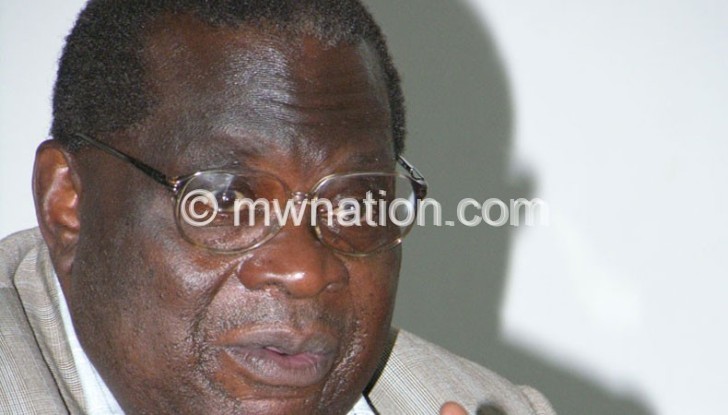PAC calls for banks probe on cashgate
The Public Accounts Committee (PAC) of Parliament has called for disclosure of commercial banks that threatened investigators and those that withheld information from forensic auditors investigating Cashgate, a report from the committee has revealed.
The committee has since called for investigations into the role and conduct of the banks during the Cashgate, saying employees found culpable should be prosecuted.

Reads part of the PAC report: “The committee recommended that government should use any means necessary to ensure that all banks that withheld information from forensic auditors, including those that took an extra mile to threaten the auditors, should be known and that necessary punitive measures should accordingly be taken against them.”
PAC chairperson Alekeni Menyani said in an interview, the oversight committee invited bankers to a hearing, but not much was derived from it hence the call for special investigations.
“We received complaints first from the local auditors from National Audit Office (NAO) who indicated that in the course of the Cashgate investigations, banks were uncooperative. Some banks were chasing the auditors while others just withheld information. It was almost all the commercial banks in the country.
“The Baker Tilly investigators also faced similar challenges, but since they were backed by stronger financial muscle and could hire the best lawyers, they faced a less huddle,” he said.
Menyani said the committee’s meeting with Bankers Association of Malawi (BAM) did not bear any fruits as the fraternity’s representatives were elusive on several issues.

“The word I can use is they were jumpy. I do not want to say they were defending the banks’ actions or not, but we noticed they were flip-flopping on a number of issues,” said Menyani.
BAM president Misheck Esau said on Friday he needed to look at the report first before responding to its contents.
But Finance, Economic Planning and Development Minister Goodall Gondwe has since told the parliamentary committee, according to the same report, that Treasury will work with the office of the Auditor General to trace all the banks that withheld information during the probe.
“The recommendation by the honourable committee is noted. Government will work with the Office of the Auditor General and other oversight bodies to trace the banks and also to find out why information was withheld from forensic auditors. If it will be established that the banks were in the wrong, then appropriate steps will be taken by following the right channels with relevant institutions so that appropriate disciplinary measures are taken against the banks,” said Gondwe in the report.
But speaking in an interview, Finance Intelligence Unit (FIU) director Atuweni Tupochile-Phiri, whose agency also played a key role in Cashgate investigations, said the body faced no similar challenges during the investigation.
“The difference is that we are mandated by law to act as a regulator, so with us, the banks have no option but to cooperate. We faced no challenges accessing any information from any bank,” said Tupochile-Phiri.
In the aftermath of Cashgate, the UK-based auditors, Baker Tilly, recommended that regulatory authorities investigate the role of commercial banks in the scandal, but no investigation has so far been instituted.
In the report, Baker Tilly observed “instances of significant control failures” among banks as they allowed large sums of money to be deposited and withdrawn without raising the alarm.
Says the Baker Tilly report: “The relevant regulatory authorities should investigate the role of banks in these cases to assess whether it would have been reasonable to expect the banks to raise concerns at the very large sums of money being deposited and then withdrawn.
“If it is concluded that the banks had not acted in accordance with banking norms and related legislation, appropriate action should be taken,” reads the auditors statement.
The UK-based auditors also observed that some banks manipulate set mechanisms to facilitate payment of huge sums of money, adding that the withdrawal of large sums of cash should have raised suspicions among bank staff.
Our sister paper Weekend Nation, however, in March this year quoted Reserve Bank of Malawi (RBM) spokesperson Mbane Ngwira that as a regulator and registrar of commercial banks, the concerns highlighted in the report were mostly criminal and were not specific regulations that RBM set for banks hence could not act on them.
But an anti-money laundering expert Jai Banda argued that commercial banks violated their obligations as required by the Money Laundering Act, something that should move the regulator to act on them. n





